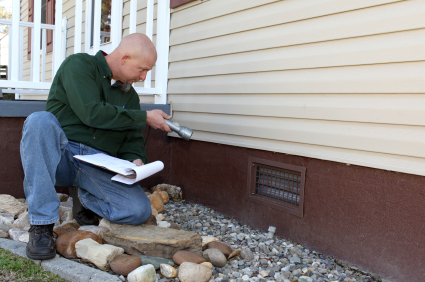No products in the cart.
BPI QCI: How Does It Compare to Other BPI Certifications?
You may have heard that the U.S. Department of Energy and the National Renewable Energy Laboratory have been working with BPI to create new certifications. BPI QCI has been particularly popular, and no, it will not replace any of the existing BPI certifications that we’ve all come to know and love.
The HEP certifications are called Energy Auditor, Quality Control Inspector (QCI), Retrofit Installer Technician, and Crew Leader.
These certifications are different from Building Analyst, Envelope Professional, etc. because they require more energy auditing experience. Most individuals looking to change careers or earn a BPI Certification will pursue Building Analyst, Envelope Professional, or the new Infiltration and Duct Leakage Certification. These entry-level designations are perfectly suitable for someone who wants to become an energy auditor, perform home inspections, earn a marketable certification, and/or add onto their existing business specialty.
Are the Home Energy Professional (HEP) Certifications Entry Level Too?
The Home Energy Professional designations, as they’re called, have more specific (and advanced) intents. You can see from the prerequisite information on BPI’s website that these certifications are meant for experienced energy auditors performing a specific function. In other words, each of the new designations is aligned with a job task analysis.
When developing the Home Energy Professional designations, the Department of Energy identified several key occupations in the home energy upgrade industry. Energy auditor, quality control inspector, retrofit installer technician, and crew leader were the occupations they identified. Then, the DOE worked with NREL and BPI to develop job task analyses for each occupation that outline the knowledge that each of these individuals should have.
What Does a BPI Quality Control Inspector Do?
A Quality Control Inspector (QCI), for example, verifies compliance of retrofit work performed by a general contractor or specialty trade. This individual performs similar diagnostic work to an energy auditor, but instead of diagnosing energy efficiency issues, this person is responsible for making sure that energy-efficient solutions were appropriately implemented. At this advanced level, a QCI uses an assortment of analytical skills, research, and paperwork to confirm work accuracy.
 An important thing to remember about BPI QCI is that the Department of Energy is requiring for all Weatherization Assistance Programs (WAP) receiving federal funding to have a BPI QCI on staff. There are WAP agencies all across the country, and each one using federal money to run the program has to employ a BPI QCI auditor. There is great demand for an experienced energy auditor who has pursued the quality control inspector certification. There will also be thousands of projects to verify!
An important thing to remember about BPI QCI is that the Department of Energy is requiring for all Weatherization Assistance Programs (WAP) receiving federal funding to have a BPI QCI on staff. There are WAP agencies all across the country, and each one using federal money to run the program has to employ a BPI QCI auditor. There is great demand for an experienced energy auditor who has pursued the quality control inspector certification. There will also be thousands of projects to verify!
With the introduction of BPI Quality Control Inspector and the other Home Energy Professional designations, it’s clear that the federal government is giving more attention to residential energy efficiency. These new certifications demonstrate support for the home performance industry and the practitioners who are moving the industry forward.
There is certainly a place (and a need) for all the BPI certifications in existence. BPI Building Analysts are still important for diagnosing initial problems in a home. There is still a lot of money to be made in home energy audits across the country. Unlike Building Analyst, which focuses more at the homeowner level, BPI Quality Control Inspectors will be more valuable to WAP agencies receiving government money. There’s room for everyone in the home performance industry!
